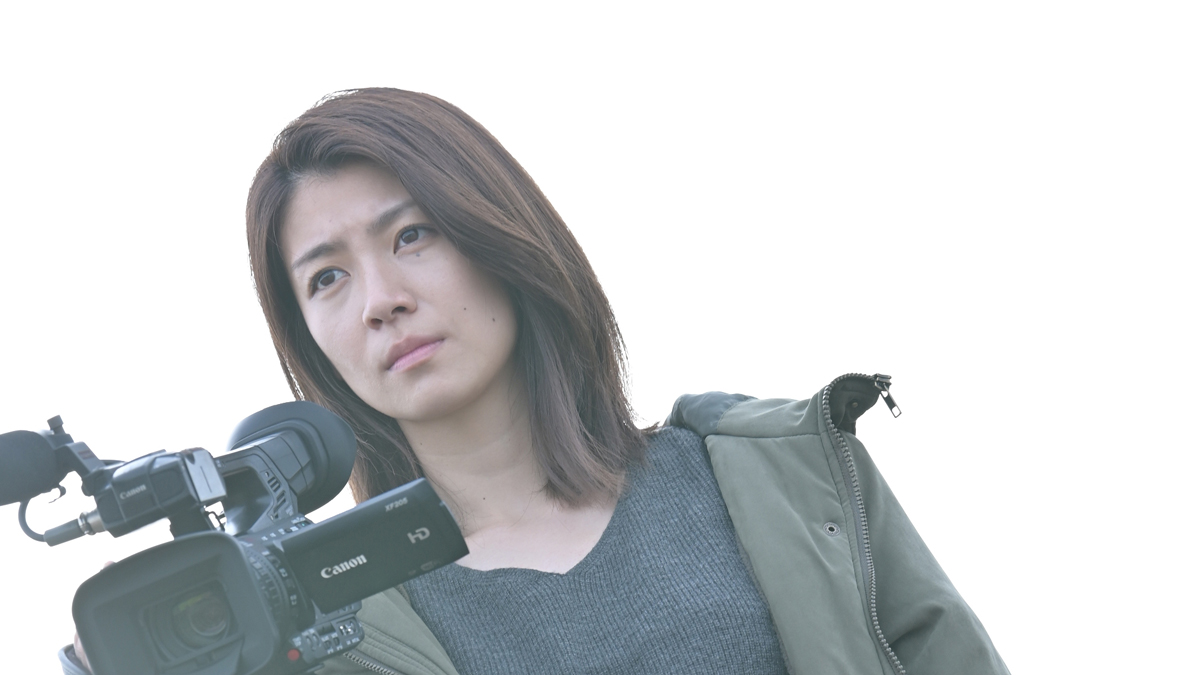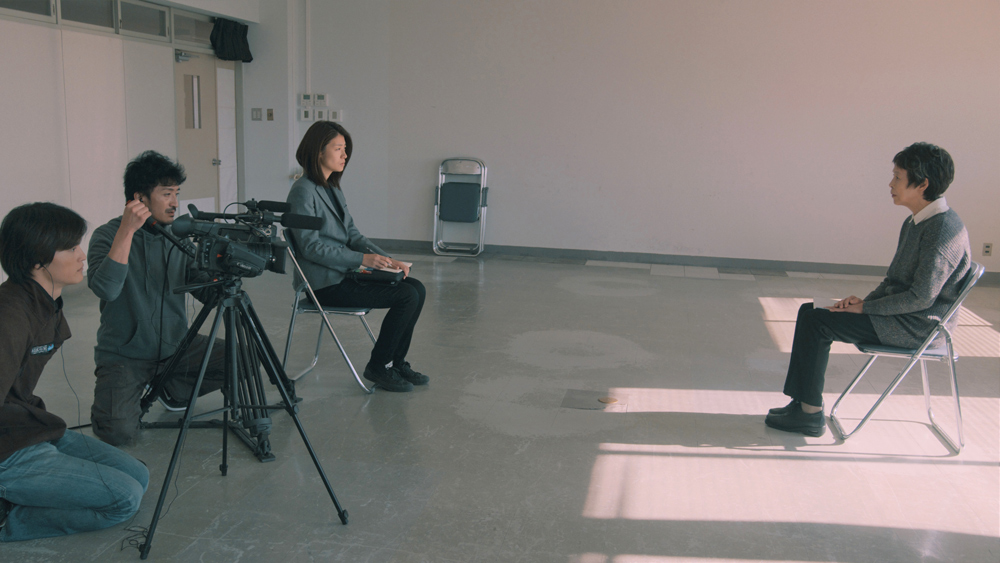
©️2020 Eiga Kobo Spring Group LLC
“A Balance” The outline of correctness that emerges by thoroughly avoiding “answers”
2021.10.02
“He who judges” and “He who is judged”
Yuko is an intelligent and noble character. He has a stronger sense of justice than anyone else, is uncompromising, and candidly shares his opinions even with producers who tend to take advantage of things. The reason why she maintains a freelance position as a documentary director is probably because she cannot stick to her beliefs if she is incorporated into the TV station system.
She is also aware of the violent nature of the act of reporting. Pointing a camera at someone is the same as pointing a pistol at someone's head. Those who are forced to stand in front of the camera lose their mental balance in response to the sharp questions, become speechless, and simply bow their heads silently. Even though Yuko is aware of the harm caused, she photographs the subject through her viewfinder in order to carry out the justice she believes in.

“A Balance” ©️2020 Eiga Kobo Spring Group LLC
The opening scene is symbolic. Yuko points her camera at Hasebe (Yuya Matsuura), the father of a high school girl who took her own life, and relentlessly bombards him with questions. The conversation between the two is depicted with cuts to alternate shots of the subject, but while Hasebe's shot does not show anyone, Yuko's shot shows her father's back.
By putting “the person being judged” in the same frame, it becomes clear that Yuko is the “person who judges,” and conversely, it becomes clear that “the person being judged” is an isolated and weak existence with no support. . Director Harumoto's precise framing conveys that the two are never in a relationship of equals. Even after that, Yuko persistently points her camera and smartphone at others and continues to show off that she is a "judge."
No, she tries to be the ``umpire'' even when the cameras aren't rolling. A tense conversation scene with his father Masashi (Ken Mitsuishi) occurs in the middle of the story. Yuko sinks into the dimly lit kitchen at the back of the living room, and in the bright light, Masashi chants words of atonement. It was like a defendant standing on the witness stand, bathed in light from directly above. It is Yuko's role to make the verdict. Masashi is just a sinner who simply accepts it.
Yuko is conscious of her own violent tendencies, yet she is faced with the contradiction of affirming violence in order to carry out justice. This is not due to the character settings. That is the true nature of the ``ambiguous thing'' called justice.
Director Harumoto's perspective is similar to the Dardenne brothers.

